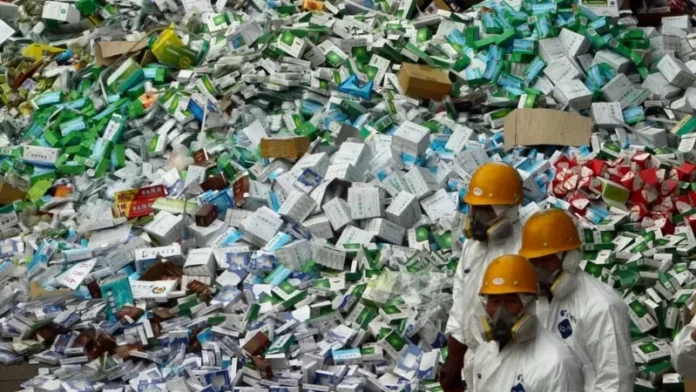Bangkok, the vibrant capital of Thailand, is known for its bustling markets, delicious food, and rich culture. However, it is also home to one of the world’s notorious markets – online pharmacies. According to a recent report by the U.S. Trade Representative, nearly all of the 35,000 online pharmacies worldwide are operating illegally, posing a significant risk to consumers who use them. These pharmacies often sell substandard, fake, or even dangerous drugs, putting people’s health and lives at risk.
The report highlighted 19 countries, including China and other parts of Asia, for their involvement in selling counterfeit or pirated products. It also named about three dozen online retailers, many of them based in China, for engaging in illegal activities.
The findings of the report are alarming, with 96% of online pharmacies found to be violating the law. These pharmacies operate without a proper license and sell medicines without prescriptions and safety warnings. To make matters worse, these websites often disguise themselves as legitimate e-commerce platforms, falsely claiming to be approved by the Food and Drug Administration (FDA). Both the FDA and the U.S. Drug Enforcement Administration have issued warnings about the risks of purchasing prescription medicines from such sources.
A survey by the Alliance for Safe Online Pharmacies’ Global Foundation revealed that nearly one in four Americans who have used online pharmacies encountered substandard, fake, or harmful medicines. This statistic is concerning and sheds light on the seriousness of the issue at hand.
Last year, federal prosecutors reported that a network of illegal drug sellers operating from the U.S., the Dominican Republic, and India had been selling potentially deadly synthetic opioids disguised as common prescription drugs through fake online drugstores. Tragically, at least nine people died from narcotics poisoning after consuming these counterfeit pills between August 2023 and June 2024.
Apart from the risks of using drugs that may contain inert ingredients or cause allergies, the report also highlighted the unsanitary conditions in which these medicines are often made. However, the report did not provide annual statistics of those who may have died or been harmed due to these counterfeit drugs.
While the USTR’s annual report cited examples from within the United States, it also mentioned the risks of importing ingredients, including fentanyl, from China. The report stated that a majority of these illicit online pharmacies are based outside the U.S.
Despite the concerning findings, the report did acknowledge the progress made in fighting counterfeit and pirated goods. It cited a successful collaboration between U.S. authorities, industry groups, and the police in shutting down a piracy ring, Fmovies, and other related piracy sites based in Hanoi, Vietnam. In another case, two people operating a pirate television platform, BestBuyIPTV, were convicted and ordered to pay fines and forfeit property.
The report also highlighted crackdowns on online piracy in Brazil and the United Kingdom, along with the busting of sellers of counterfeit products in Kuwait. However, the report also mentioned the challenges faced in restricting piracy, such as cyberlockers and so-called “bulletproof” internet service providers that allow people to use pirate sites without consequences.
One such provider is Avito, a Russian-based ad platform that allegedly allows sellers to advertise counterfeit products. The report also pointed out Baidu Wangpan, a cloud storage service of China’s largest search engine provider, Baidu, for failing to enforce copyright protection promptly. It also named Pinduoduo, a popular social-commerce site in China, and Douyin Mall, an online platform owned by the parent company of Tiktok, for hosting many counterfeit goods despite their efforts to build up protections.
The report also mentioned Shopee, a Singapore-based online and mobile e-commerce site, for having a better track record in fighting piracy compared to other country-focused platforms serving Southeast Asia and South America. However, it also highlighted the presence of counterfeit products on IndiaMART, a big business-to-business marketplace in India.
While a significant share of intellectual property theft has moved online, the report also shed light on real-world locations notorious for selling counterfeit products. These include markets in Turkey, bazaars in the United Arab Emirates, and Saigon Square Shopping Mall in Vietnam’s Ho Chi Minh City.
In conclusion, the USTR’s annual report on notorious markets is a wake-up call for all of us. It highlights the rampant illegal activities taking place in online pharmacies and the risks they pose to consumers. While progress has been made in fighting counterfeit and

